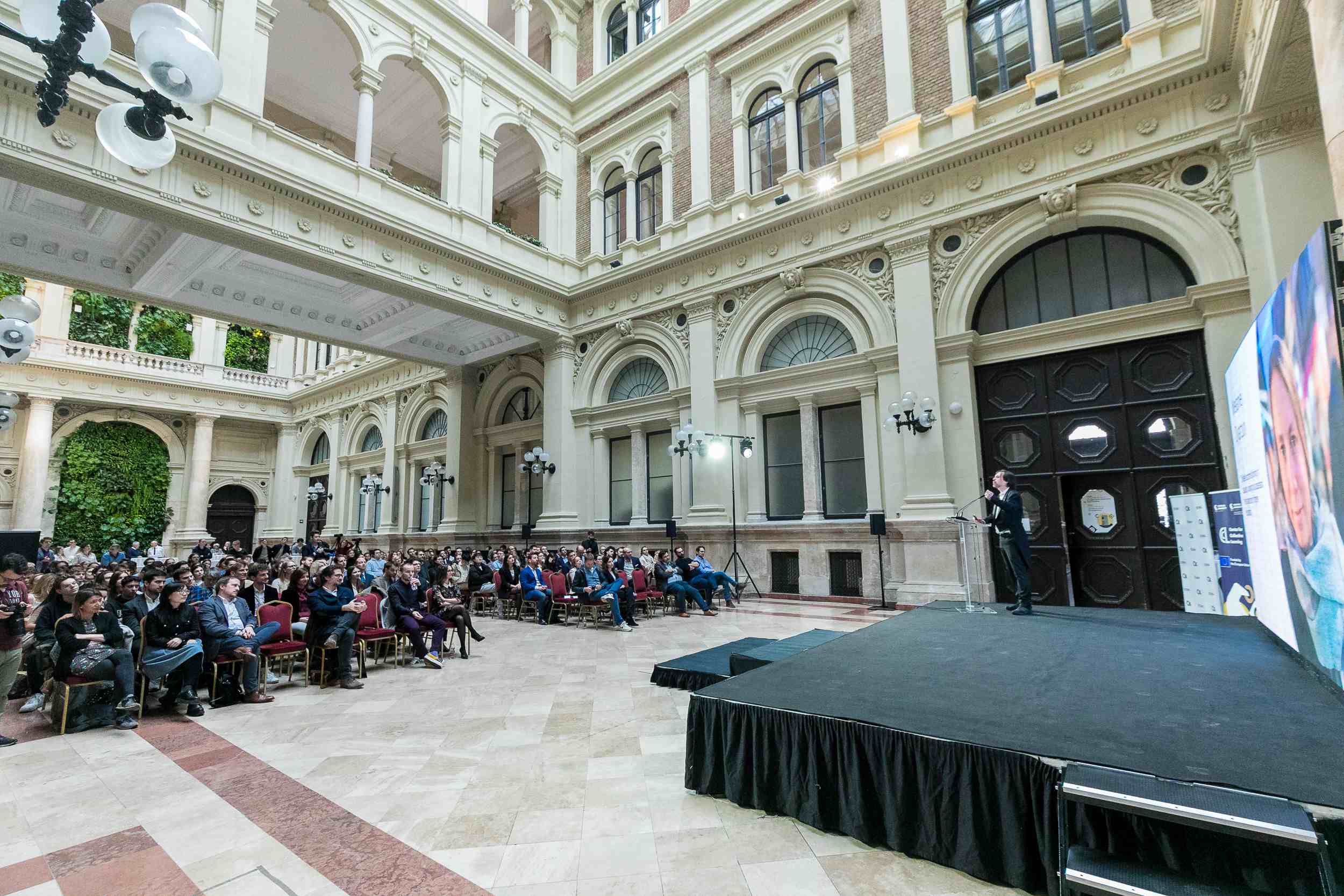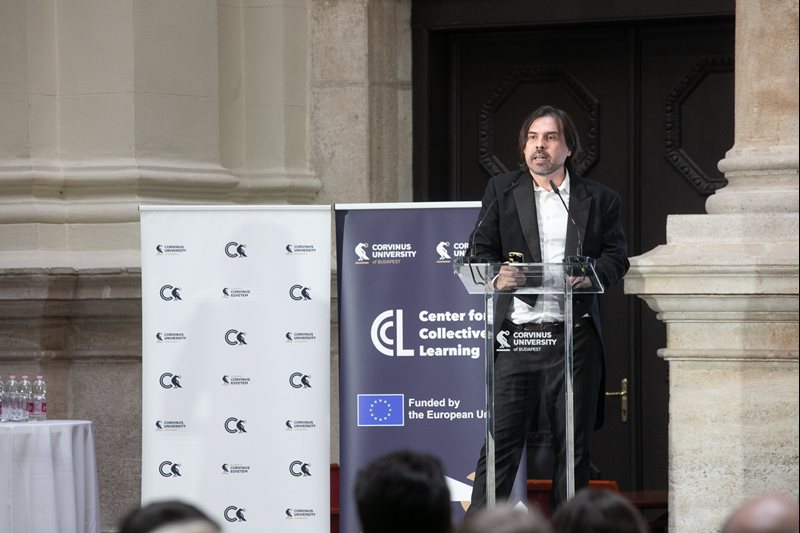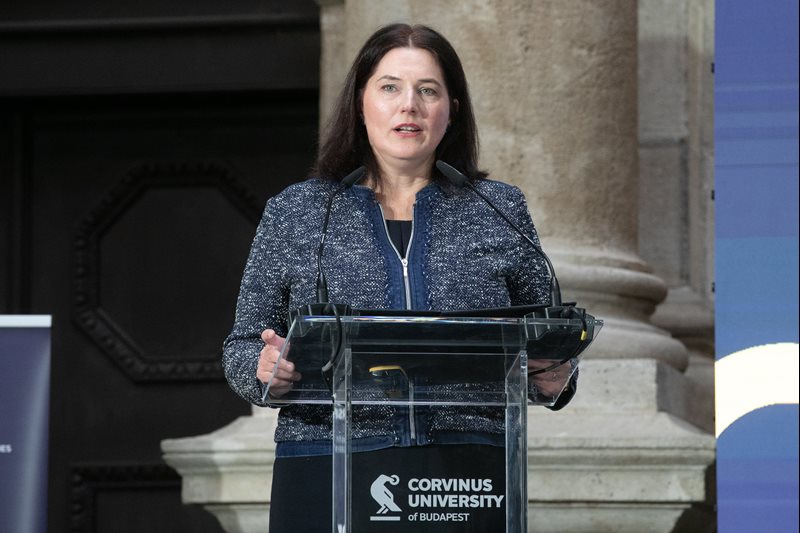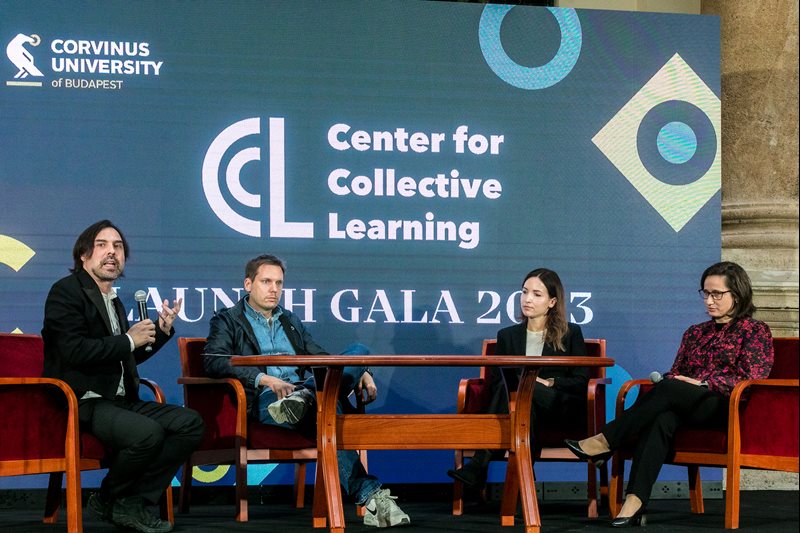The people who know where Tesla will open its next factory – introducing the new research team of Corvinus University

“At the Center for Collective Learning (CCL) in Toulouse and now at Corvinus University in Hungary we are developing platforms, methods and tools that will help us predict the development of markets,” stressed Cesar Hidalgo at the event, who previously led a similar group at the Massachusetts Institute of Technology (MIT) for more than 9 years. The professor illustrated the Center‘s activities with a current research case study. In early 2023, Tesla announced plans to open a new factory in Mexico. Naturally, all of the governors started lobbying for the South American factory of the leading electric car brand to open in their state. In the end, Tesla chose a town in northern Mexico, 300 km from the US border. Hidalgo said that Tesla’s decision could have been modelled in advance by the machine learning technique they used.

The professor said that it was the dedicated work of Hungarian researchers that made it possible to launch the Center for Collective Learning at Corvinus in Budapest as part of the Corvinus Institute for Advanced Studies (CIAS) in January. The team’s research focuses on the spatial and temporal organisation of knowledge, the complexity of the economy, and the development of artificial intelligence on the basis of data. As Hidalgo explained, in recent months the research team has published papers in several prestigious international journals, including on topics related to economic development, and on the human perception of artificial intelligence and machine learning. The community, which was formed at the beginning of the year with a small team, has since been joined by several young international researchers who briefly presented their respective research areas.
Johannes Wachs, for example, is researching the ways to prevent artificial intelligence (AI) from “eating” itself. With the spread of AI, the question is whether there will be enough human-generated content on the internet for AI to build on and evolve. Manran Zhu is particularly interested in knowledge navigation: with a degree in theoretical physics and quantum physics, she focuses on the part of physics that describes the laws of human behaviour. She is currently studying the factors that make women more likely to drop out of higher education and the network effects that cause gender inequalities in academia. Chiara Zappala examines the often overlooked link between luck and sporting performance, concluding that the current system of sports salaries is inherently unfair. She has found that in both fencing and tennis, small fluctuations in individual match points can have a profound effect on an athlete’s entire career, significantly affecting their professional lives and ultimate success.
At the event, Cesar Hidalgo thanked the lecturers and staff for their warm welcome and help with launching the Centre: “Not knowing the culture, not speaking the language, it was not an easy task to set up a new research centre. But at this university I got all the help I needed from my colleagues to get started, for which I cannot be grateful enough“.
A milestone in the history of Corvinus
The gala was opened by Tamara Keszey, Vice Rector for Research, who said that it was a significant milestone that Corvinus had been awarded the first “ERA Chair” EU grant in its history, which made it possible to establish the Centre. The Vice-Rector thanked Cesar Hidalgo for taking on the leadership of the innovative research centre, which will enable Corvinus to become one of the best economics research centres in Europe and consolidate its leading position in the field of economics and business education: ‘We are very proud to be the first university in Hungary to establish a data science workshop on the complexity of the economy. With the establishment of CCL, we have every chance of soon becoming a leader in economic research on artificial intelligence and data science“.

During the rest of the programme, the staff of the Centre briefly presented their research topics, and in a panel discussion Judit Piukovics (Head of Direct Sales EMEA, Formlabs), Réka Franciska Vas (Vice Rector for Education, Corvinus) and Gergely Böszörményi-Nagy (Founder, BrainBar, Chair of the Board of Trustees, MOME) shared their experiences and thoughts on the subject of innovation.
